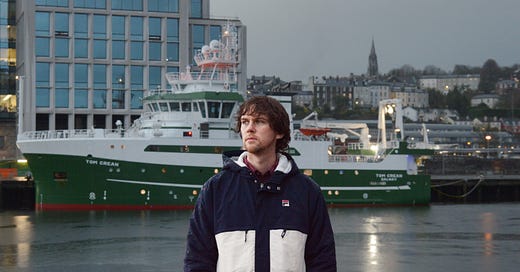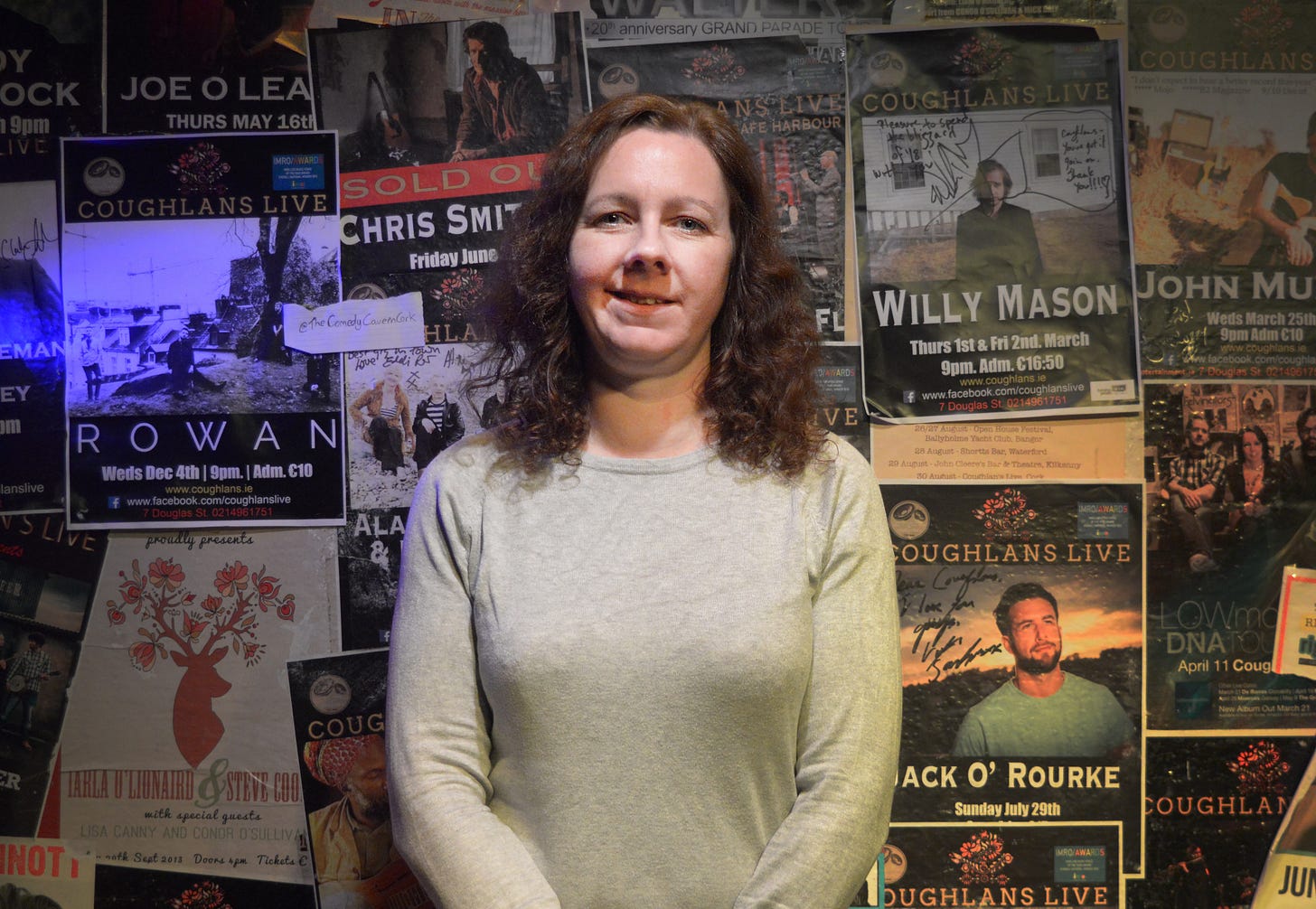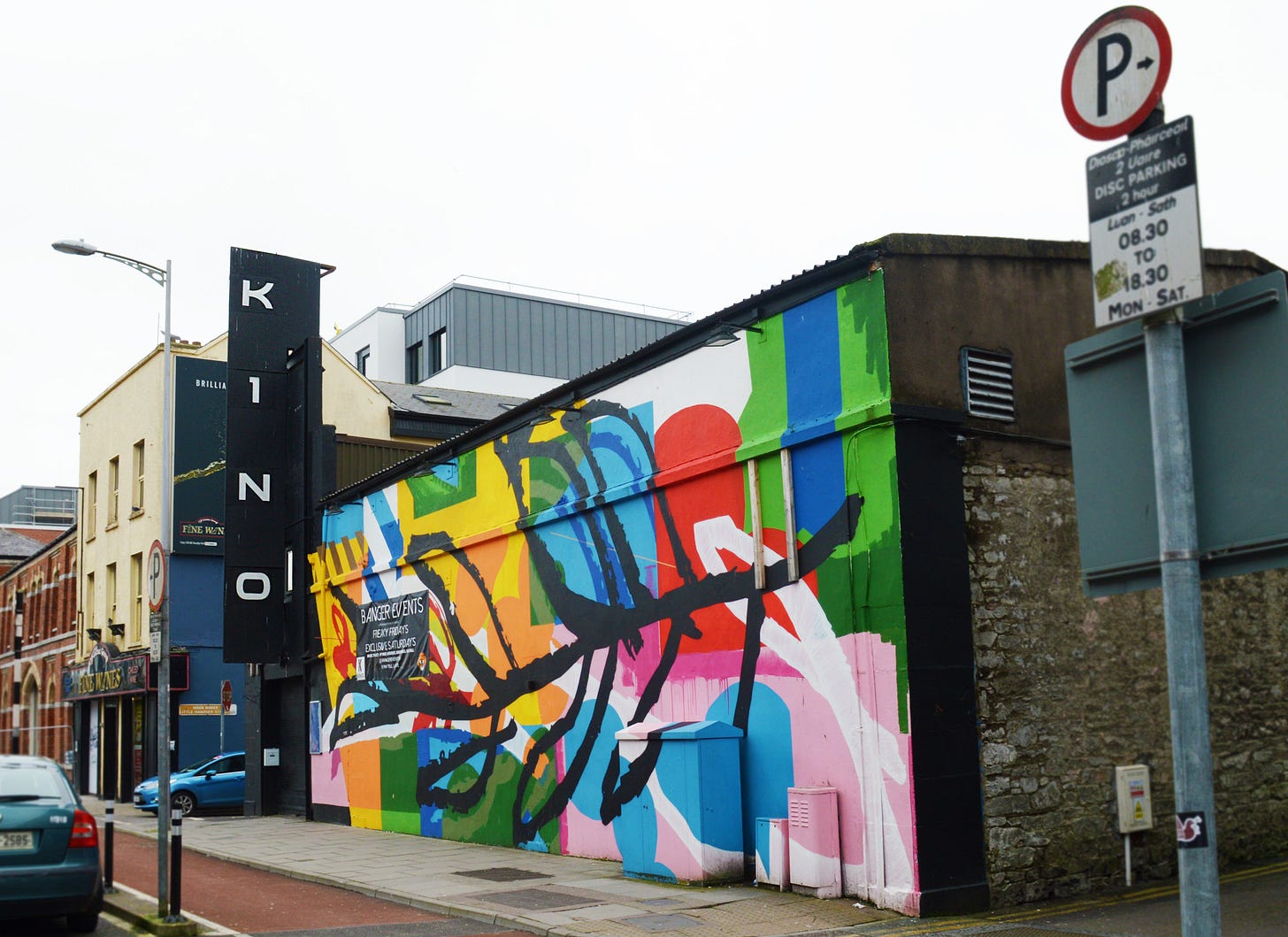Opinion: Cork city is having a venue crisis
New licensing laws and government funding for gigs won't act as sticking plaster for the shortage of venues for independent, DIY and alternative acts, Kilian McCann writes.
The government have recently made two major leaps of faith into the country’s night-time economy. A change in licensing laws is coming in, with pubs permitted to open until 12.30am and nightclubs until 6am from early next year, after years of campaigning by the Give Us the Night group.
The new night-time economy strategy also includes the allocation of “night mayors” to overlook a city’s nightlife and work in tandem with the Lord Mayor, An Garda Síochána, venue operators and event promoters.
This announcement was soon followed by the allocation of major funding from the Department of Tourism, Culture, Arts, Gaeltacht, Sports and Media (TCAGSM) for the organisation of cultural events under the Night Time Economy Support Scheme.
Across Cork city and county, a variety of pubs, hotels and cafés received over €330,000 to put on gigs. This funding has been split into two strands: Strand A includes licensed premises such as pubs, clubs and wine bars, and Strand B is for unlicensed premises like cafés and galleries.
All good news, you’d think, but not without controversy. Late bar managers, most notably those who run Rearden’s and Soho, have expressed concern that there isn’t the demand for this type of nightlife in Cork. They have also pointed out that staff would not want to work those hours.
However, when you think about what appropriate venues there are for post 2 am nightlife, the list is almost non-existent, while the number of those who cater for traditional gigs is dwindling.
Cork city is having a venue crisis.
Cork has a recent history of important cultural spaces closing their doors, usually in the name of redevelopment. Camden Palace, a community arts centre situated in an old courthouse, was shut in 2017 to make way for a hotel, while Cork Community Print Shop, an important BYOB space for young metal bands, had shut a year earlier and has lain idle since.
Cork just has a serious lack of choice when it comes to venue spaces, and it’s been worsening in the past few years as a few pub owners consolidate the available choices.
Alternative music and cultural spaces have become marginalised in the city and venues which welcome young, alternative bands, as well as spaces for them to practice, are getting rarer and rarer.
Another issue that the venue shortage causes is one I wrote about in a blog post discussing two gigs I went to in September: economic sustainability.
Any venue used for alternative music in Cork is either too small, or a promoter ends up getting a bad deal from the pub.
One of the gigs I went to had to pay so many overheads - venue rental, a sound engineer, a PA, the band – that if they hadn’t sold out, the organisers would have lost money. Meanwhile, another space, the Corner House, puts on great free gigs, but it’s filling a big hole that it’s too small to fill.
Before Covid 19, things weren’t perfect and there was an air of pessimism in the scene as Camden Palace and the Print Shop closed, but Cork did have some solid venues for alternative music: the 250-capacity Kino run by The Good Room, and 80-capacity Plugd, upstairs in The Roundy, run by Jimmy Horgan.
Coughlan’s is now just about the only mid-sized venue to welcome alternative acts as Cyprus Avenue, renovated and expanded in 2018, is too big for most local bands. The lack of choice is leading to scenarios such as that mentioned above: we can only dream of having spaces such as those we had before 2020.
The Live Venue Collective
Covid lockdowns and venue closures caused much worry for music venue operators and led to many fighting for survival. This led to the creation of the Live Venue Collective in 2020. A lobby group aimed at bringing small independent Irish venues together and sharing ideas for survival, it initially included twenty-three venues, seven of which were in County Cork and included stalwarts like Connolly’s of Leap, De Barra’s of Clonakilty and Levis’ of Ballydehob.
“Initially, it was to figure out how we were going to survive during the pandemic,” Edel Curtin, owner of member venue Coughlan’s, tells me. “At the time there was no funding in place, and it was to try and start petitioning the government, to survive. Otherwise, I honestly think we would not be still open as a venue.”
Not all venues survived the Covid closures, however, and the version of The Kino organised by events company The Good Room, run by Joe Kelly and Ed O’Leary, didn’t make it to the other side.
Caoilian Sherlock, musician and The Good Room’s Operations Manager, explained the value of The Kino as a venue to me. “It’s something kind of unique, in that it’s just a black box space which is adaptable. It’s one of my favourite kind of rooms,” he says.
Cork is lucky to have a space like this, Caoilian believes: “if you go to any other city in the world, you won’t find many places that are just empty shells with a few lights and a small stage.”
Who better than The Good Room, who run the successful Live at St Luke’s series of events in St Luke’s church, to manage this space. They did, and for seven months, it was one of the best venues in Cork for alternative acts.
“We hosted about five or six different festivals,” Caoilian says. “Every weekend had different types of gigs for the most part, just some amazing art, we had some really massive international acts playing in there too. Unfortunately, Covid came and just took the wind out of its sails and it was too expensive to keep an empty shell going for whatever period of time.”
The Kino is now back under new stewardship, mostly putting on DJ sets. Trash Culture Revue, a monthly performance art revue, was also held there at the end of October, although it is yet to make a second iteration.
However, the current set-up feels a small bit closed off, and live gigs aren’t happening there as much. The current plans for redevelopment don’t help either; An Bord Pleanala have approved plans to demolish the existing building and replace it with a five-storey student accommodation complex, even though this will come with a ground floor cinema and “performing arts space.” Caoilian is sceptical about how this will work out.
“It’s unrealistic that you would be able to have a unique venue like that with student apartments or whatever type of apartments on top of it,” Caoilian tells me. “The plans didn’t scream ‘amazing venue.’”
And so, one of the city’s most important and unique spaces may not be with us for much longer, while those which we take for granted are frustrated with the lack of support from the government.
“During the pandemic, they were fantastic to be fair to them, they did listen to us,” Edel Coughlan says. “But there is a lot of red tape with giving venues that are considered commercial money. But the reality is that none of our venues are commercial, because there was no money made on ticket sales.”
The €330,000 investment from the Night Time Economy Support Scheme in 2022 helped, and Coughlan’s was one of the venues that benefited, but Edel believes the next scheme for 2023 won’t be much help.
Inklings of knowledge come in as to what 2023 will entail, and Strand A premises might be left out of the next night-time economy scheme altogether, she worries: “Unfortunately I think the next Night Time Economy Scheme is going to be more geared towards markets and night-time cafés, which is brilliant too, but unfortunately it’s us behind again.”
This is accentuated by recently restored VAT rates in the budget. “We’ve ended up worse off, because the VAT rate of ticket sales is going up to 13.5%, which is a jump of 4% of what we’re paying currently,” she says.
This doesn’t scream hope, but it has always been the case. “The problem is there’s actually a crisis all the time, but it’s not acknowledged as being a crisis,” Edel says. “Without government supports, there probably won’t be any new venues opening, and the ones that are there probably won’t exist for much longer.”
Plugd, a café and record shop which has been one of the most important spaces for alternative music in Cork, is probably the most obvious example of this. The shop/venue has moved around many times, previous iterations have been housed in the Triskel Arts Centre, upstairs in The Roundy, and even for a time, in an old ESB substation on Caroline Street.
When Plugd was in The Roundy, however, was when it seemed like there was what was the closest thing to a DIY, open-to-all venue in Cork. With circa 80 capacity, the space was open to everyone, and some of my favourite and most memorable gigs in Cork city took place there. Kids could play there if they wanted to play somewhere bigger than Fred Zeppelin’s, and it hosted many fundraisers and table quizzes for DIY collectives.
Nothing lasts forever though, and Covid lockdowns ended Plugd’s incarnation in the Roundy. Jimmy sold records online, delivering them on his bike, before selling from Filter Café and then Rebel Reads.
In the past year, though, Plugd has been located in a more traditional retail unit on the Coal Quay. There, BYOB gigs are hosted, while it has collaborated with outdoor space Test Site across the street on non-alcoholic, all-ages events.
Across the river, Myo Café has been hosting BYOB events similar to Plugd, and it is these types of spaces which are being encouraged by government funding as Strand B venues, which Edel says are more likely to be encouraged through to 2023.
The current version of Plugd is great. You see compelling gigs there, and it gets lots of love. It’s a very limited capacity space though, and the open, DIY space which Jimmy had in The Roundy is a big loss to live music here which hasn’t been yet replaced.
But that’s not the only type of venue Cork needs. “Cork probably requires a mid-sized venue that’s somewhere below Cyprus Avenue and above Coughlan’s in terms of capacity,” Caoilian tells me. But the architecture of the city doesn’t lend itself to that easily, he feels: “If you look at the types of buildings in Cork, that’s not entirely feasible here when you just look at what’s available on the ground, for sale, the buildings aren’t there.”
Do the licensing laws discussed at the start seem like a pointless exercise then, when we can’t even maintain the larger venues that do the traditional nine-to-midnight stuff?
“I think it shows that the government are forward-thinking at the very least,” Caoilian answers.
Before Covid, things were equally dead when it came to alternative nightclubs, he points out. “You only had Dali doing alternative nightlife, and that was short-lived and on its own at the time, by the time Dali came along, there was really nothing else. I think for a city to feel like it has real nightlife, you have to have one place doing alternative type music.”
Dali had taken over the former Pavilion for a time, and still do club nights on a Friday and Saturday in Mason, on Tuckey Street, although they no longer have a space of their own.
“I don’t want to be negative about it because I don’t want to say it will never work in Cork, but the current landscape, as it is, there’s not really a place that I see that can take advantage of a 6 am close,” Caoilian says. “I think you need a form of alternative nightclub for that to be interesting. Crack Jenny’s have been taking that job, for me.”
Having the Craic
Crack Jenny’s on Lavitt’s Quay, is a newly opened venue in its first year. It has also been welcoming to young musicians and Vexed Promotions, an alternative club night run by God Alone members Jake O’Driscoll, Jack O’Hanlon and Cian Mullane, put on upstairs.
They enjoy a positive relationship with the venue. “Crack Jenny’s has been quite good for it because they’re normally trying to be geared towards club nights,” Jake says to me. “It was interesting putting bands in there as well and live performances, cos its normally just DJ nights.”
Through their post-metal five piece God Alone, Jake, Jack and Cian have experience of many of the city’s venues, most notably Fred Zeppelin’s, and Jake says they had initially tried club nights there: “It was actually really good, but it just didn’t have the certain clubiness we wanted.”
A natural relationship then began as the city’s newest venue began a positive relationship with the city’s alternative musicians. Could this spot, then, be a location which would take advantage of the new licencing laws in a positive way?
“I think introducing actual nightclubs, rather than late bars with loud music, is a great thing to happen in Ireland to have to build them and open places back up,” Jake says, although the lads recognise that there are definite hurdles and considerations when talking about what the results of the new laws will be.
“There’s definitely no appetite for it in Rearden’s or Soho,” Jack says, “but there might be the right sort of appetite for like, say, people who just want to go out and see something really cool and stay out and have a lovely time. You’re not going out to just get langers!”
There are definite challenges which the new licensing laws will present, mostly related to staffing and transport. Jake puts it into the perspective of the worker: “I wouldn’t like to be working in the bar that late. Unless pubs are prepared to be paying people more for doing night shifts, because it is a night shift, then that’s not great.”
As a venue owner, Edel agrees with the licensing laws in principle, although it does make things difficult for staff. “I think that the staffing crisis at the minute in the industry will make it hard for people to do it,” she says, “because it’s difficult as it is to try to keep staff working.”
Staffing is one issue amongst many needing consideration, if anything is to come of these licensing changes. “I do think there needs to be more investment than just changing the licensing laws,” she says. “There’s issues related to soundproofing venues if there’s residents living in the area, and those kinds of things need to be taken into consideration as well. What’s the infrastructure going to be around and if places are going to be open until 4 or 5 o’clock in the morning, will there be taxis around? There doesn’t seem to be that infrastructure there even for what’s open at the minute.”
The government supports for nightlife are admittedly better than they were during and after the Covid lockdowns, and they provided a lifeline for many venues, even if some didn’t survive.
However, new challenges have emerged and there are fears that the supports will eventually vanish. Strand A needs equal support to Strand B, as venues such as Coughlan’s are essential in the city’s culture and necessitate similar levels of support to those which do not sell alcohol.
Before we even think about what happens deep into the night, we need to maintain what we have.
Otherwise, we’re just putting the cart before the horse.
Kilian McCann has a degree in history and sociology from UCC and is now completing a Master of Research at Glasgow School of Art in Scotland, writing a thesis about the adaptation of countercultural magazines to the digital age. His blog is here. He has written for UCC’s Motley Magazine and the Blackpool Sentinel.










Superb bit of local journalism, well done